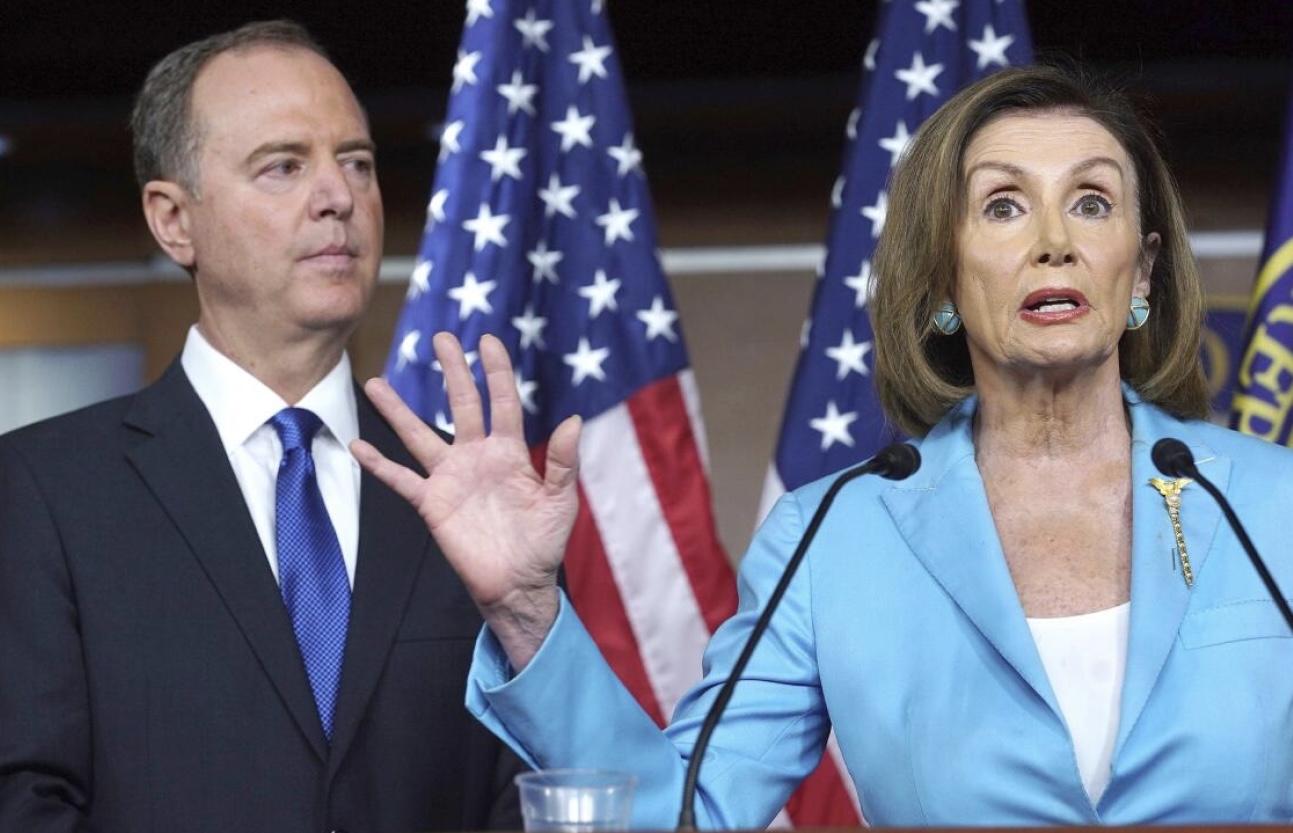Trump’s Latest Pardoning Surge Stuns Pelosi and Schiff – “A Disturbing Abuse of Power”
In a move that has sparked significant controversy, President Donald Trump issued an executive order pardoning the majority of the defendants involved in the January 6 Capitol riot. This decision has drawn sharp criticism from prominent Democrats, including Senate Majority Leader Adam Schiff and former House Speaker Nancy Pelosi, who have labeled the pardons as both hypocritical and deeply concerning. The order, seen as part of Trump’s broader strategy to reshape his legacy and influence the nation’s justice system, has been described by critics as a dangerous misuse of presidential power.
During an appearance on MSNBC’s show hosted by former White House Press Secretary Jen Psaki, Schiff did not hold back in expressing his disapproval of the pardons. He called the act “obscene” and a “grotesque display of his new power as president,” referring specifically to the pardons granted to over 1,600 individuals. Schiff’s anger is rooted not only in the sheer scale of the pardons but also in the fact that some of the individuals granted clemency were involved in violent assaults against law enforcement officers during the Capitol attack. “It’s hard to fathom that just hours after the chaos at the Capitol, the man who incited that attack would choose to pardon those who participated in it,” Schiff remarked, emphasizing the gravity of the president’s actions.
The pardons have particularly drawn ire due to the involvement of extremist groups, such as the Proud Boys. One of the group’s leaders, who played a key role in the events of January 6, was among those granted clemency. Schiff decried this as emblematic of Trump’s tendency to reward extremist behavior and political allies, turning a moment of national crisis into a spectacle of political favoritism. Pelosi echoed these sentiments in a statement on social media, calling the pardons “an outrageous insult to our justice system.” As a staunch advocate for law enforcement, Pelosi expressed her belief that these pardons not only diminish the sacrifices made by the officers who defended the Capitol but also erode the public’s faith in the rule of law. “It is shameful that he would make one of his top priorities the abandonment and betrayal of the very heroes who put their lives on the line to protect our Constitution,” Pelosi declared.
The pardons have reignited the ongoing debate over Trump’s inconsistent use of clemency powers. Critics have long argued that Trump’s pardons often serve political purposes rather than serving the interests of justice. While President Joe Biden has been criticized for granting pardons to his own allies, Trump’s decision to pardon those convicted for offenses stemming from the Capitol riot has raised alarms over the message it sends regarding accountability for violent actions. Psaki pressed Schiff on the broader impact of the pardons during their MSNBC discussion, asking about the long-term effects on the nation’s collective memory of January 6. Schiff’s response was unequivocal: “It’s terrible that a president would so cavalierly use his power to pardon people who not only trespassed on the Capitol but, in some cases, engaged in violent behavior against law enforcement,” he said.
The fallout from Trump’s decision goes beyond political rhetoric, sparking a heated conversation about the future of presidential pardons and their implications for democracy. Legal experts have weighed in, pointing out that while the president has broad authority to grant pardons, using that power to absolve individuals involved in a violent insurrection raises serious constitutional concerns. Some worry that this could set a dangerous precedent for how accountability is applied in cases of domestic terrorism, undermining the rule of law and the integrity of the justice system.
On the other hand, Trump’s supporters view the pardons as a fulfillment of his promise to “put America first.” They argue that the pardons correct what they perceive as politically motivated prosecutions and an overreach by the previous administration in its investigation of Trump and his campaign. For these individuals, the use of executive clemency is seen as a necessary step to restore balance and prevent the misuse of the justice system for political ends.
As the nation continues to wrestle with the fallout from this executive order, it is clear that the use of pardoning power during Trump’s second term has deeply divided the country. Pelosi and Schiff’s strong condemnations highlight the ideological rift over executive power and the role of pardons in the justice system. In the months to come, discussions surrounding accountability, fairness, and the legacy of January 6 are likely to intensify, as the nation tries to make sense of Trump’s controversial decision. How history will judge this use of presidential power remains to be seen, but for now, the debate continues to shape the political landscape.
